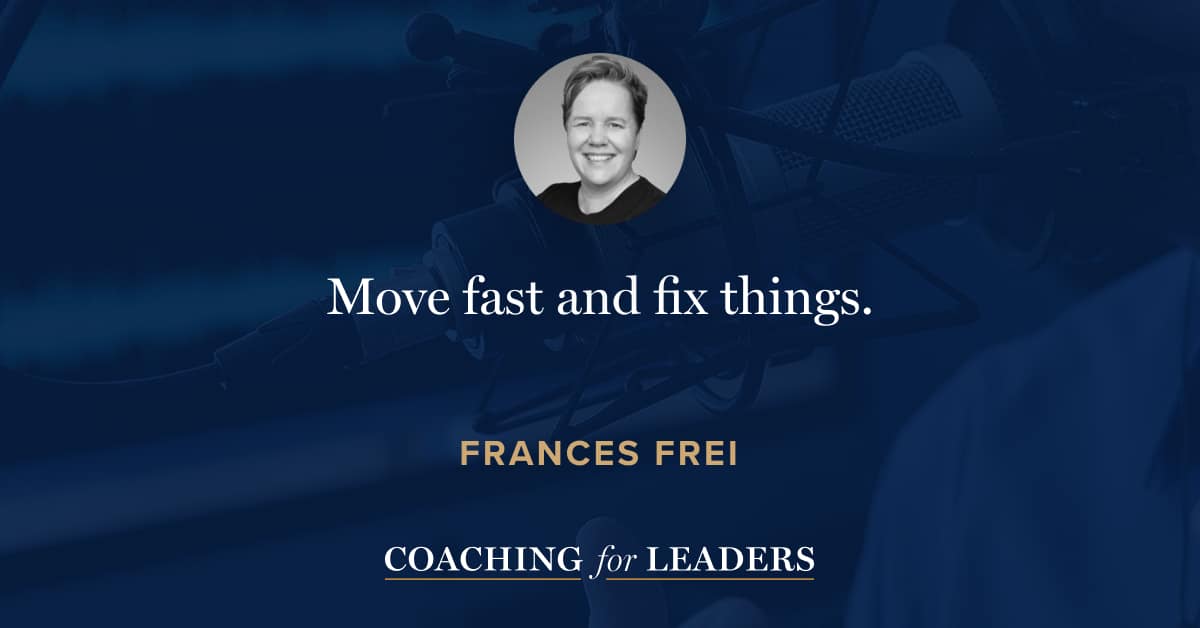Frances Frei: Move Fast & Fix Things
Frances Frei is a professor at Harvard Business School. Her research investigates how leaders create the context for organizations and individuals to thrive by designing for excellence in strategy, operations, and culture. She regularly works with companies embarking on large-scale change and organizational transformation, including embracing diversity and inclusion as a lever for improved performance. In 2017, Frances served as Uber’s first senior vice president of leadership and strategy to help the company navigate its very public crisis in leadership and culture.
Her partner Anne Morriss and her are the authors of Uncommon Service and The Unapologetic Leader’s Guide to Empowering Everyone Around You. They are also hosts of Fixable, a leadership advice podcast from the TED Audio Collective, and they are recognized by Thinkers50 as among the world’s most influential business thinkers. Their newest book is Move Fast & Fix Things: The Trusted Leader's Guide to Solving Hard Problems*.
A lot of us assume that going fast is reckless. There are certainly times when that’s the case, but it’s also true that leaders going too slow at the wrong time can make things worse. In this conversation, Frances and I discuss how to do a better job of moving quickly when it’s time to address the toughest problems.
Key Points
- Many of us believe that going fast is reckless and going slow is righteous. While there are times that is true, there are many examples where it’s not.
- The fastest way to speed up your company is to empower more people to make more decisions.
- Dare to be bad at something. Deciding what not to address allows you to go faster at what you’re best at.
- Two key elements of completing work are work-in-progress and cycle time. Most leaders address cycle time first and miss the more substantial work-in-progress opportunities.
- Create a way to fast-track projects that become important and build this into the culture of the organization.
Resources Mentioned
- Move Fast & Fix Things: The Trusted Leader's Guide to Solving Hard Problems by Frances Frei and Anne Morriss
Interview Notes
Download my interview notes in PDF format (free membership required).
Related Episodes
- The Way to Turn Followers Into Leaders, with David Marquet (episode 241)
- How to Solve the Toughest Problems, with Wendy Smith (episode 612)
- How to Approach a Reorg, with Claire Hughes Johnson (episode 621)
Discover More
Activate your free membership for full access to the entire library of interviews since 2011, searchable by topic. To accelerate your learning, uncover more inside Coaching for Leaders Plus.





